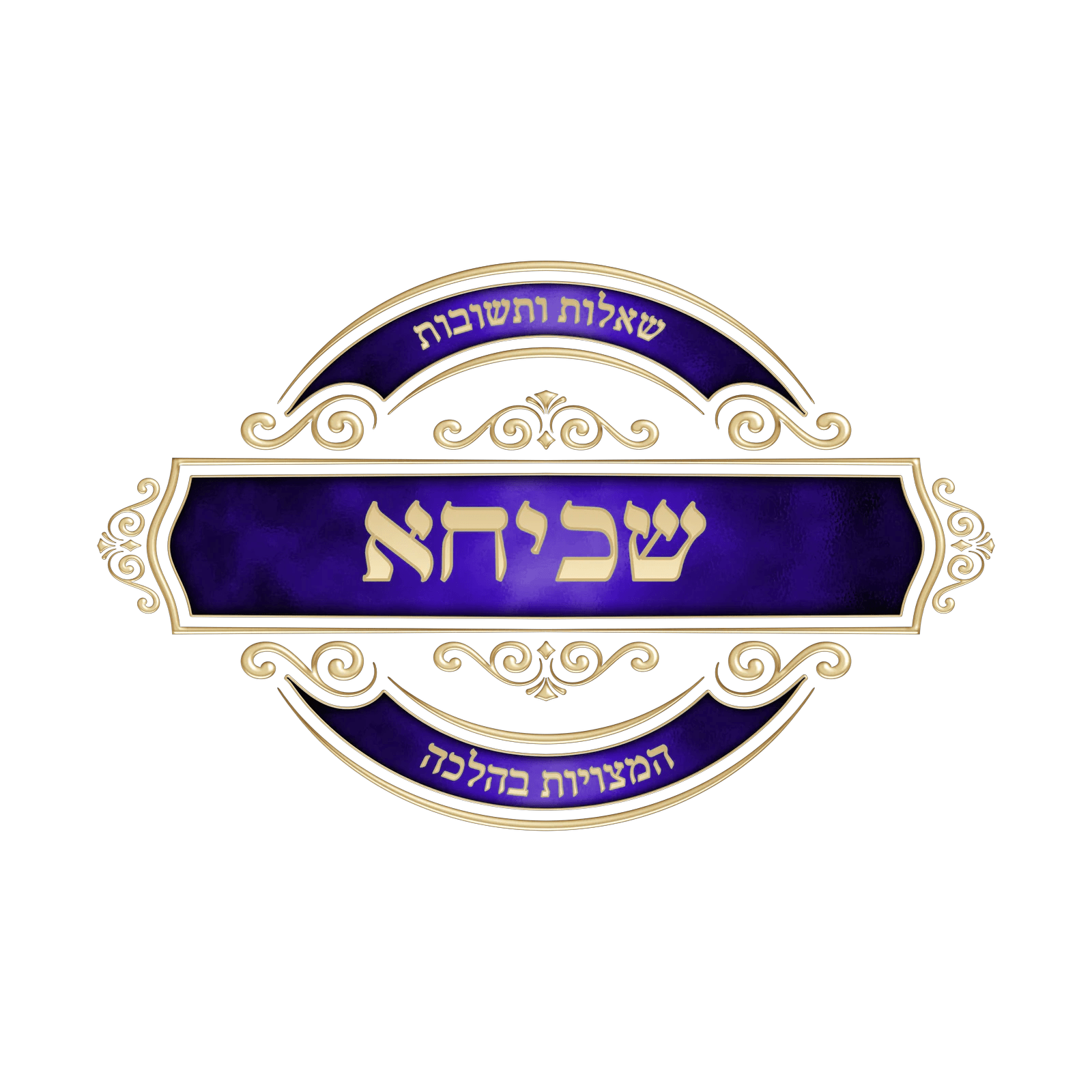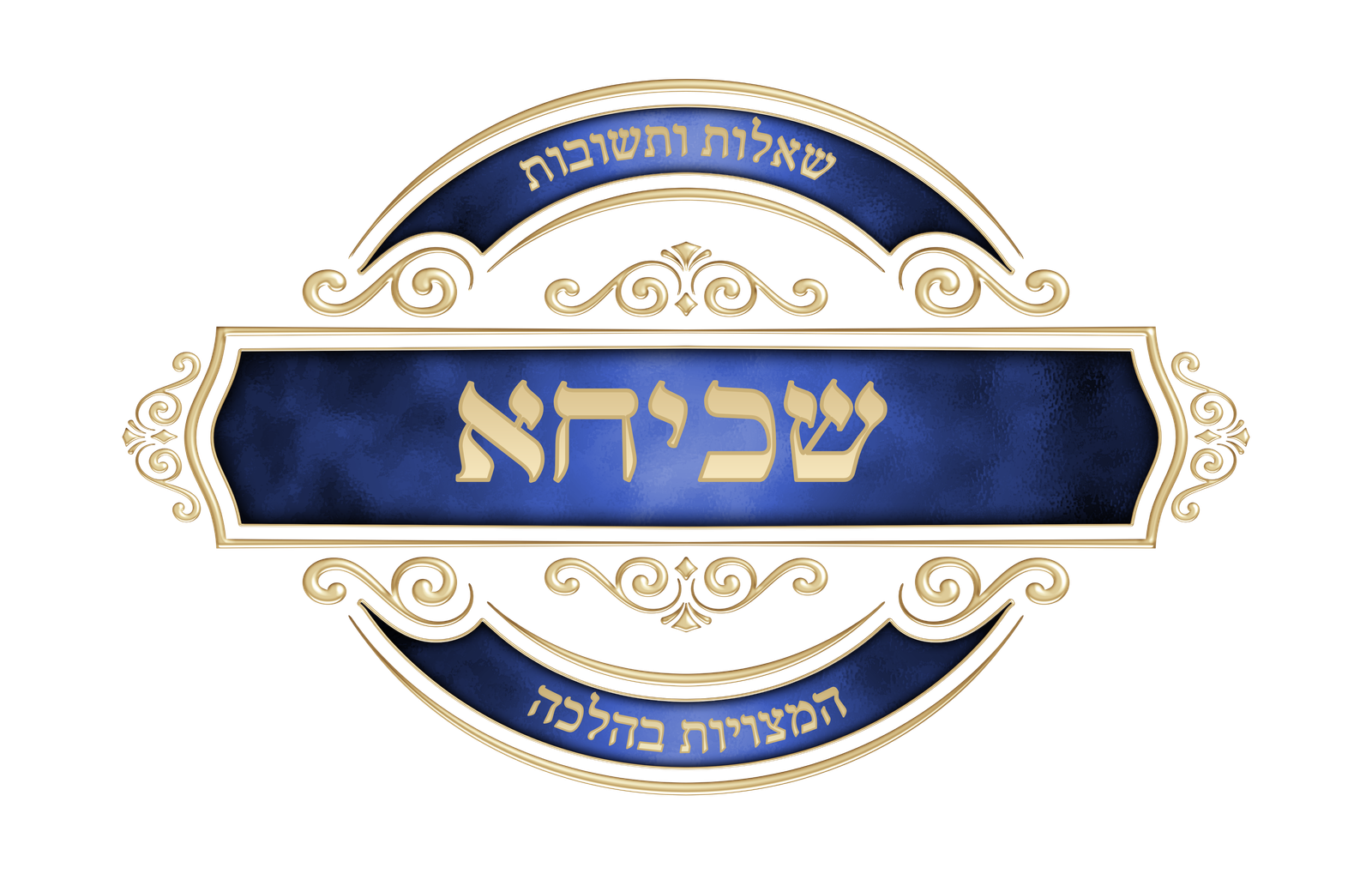יצא בזה (ועי’ עוד במקורות דלהלן), ולא שייך לומר שיצא בזה רק בדיעבד, במובן של בדיעבד שהי’ אסור לו לנהוג כן לכתחילה, לא שייך לומר כן, שהרי כולם נוסחאות נכונות מהראשונים והובאו בשו”ע ונו”כ, אבל המומלץ הוא לנהוג קבוע כאנשי קהילתו, ואם ידוע לו מנהג אביו בזה יש אומרים שיש עדיפות לנהוג כמנהגי אביו, ואם הוא בעל תשובה יש אומרים שאינו מחוייב למנהג אביו ויכול לנהוג כמנהג רבותיו באופן זה, ויש מהפוסקים שהמשמעות בדבריהם שגם בעל תשובה מוטב שינהג כמנהג אביו, ויש מהפוסקים שהזכירו שאין ראוי לערב בין נוסחאות אלא לומר הכל באותו הנוסח ולא לשלב ביניהם.
ולענ”ד העיקר בכל זה במה ששייך בזה להלכה הוא שאם יש דבר שידוע בו הנוסח המקורי ראוי לומר הנוסח המקורי, ובדבר שיש בו כמה נוסחאות נכונות, אם יש לו קהילה ברורה שהוא משתייך אליה ינהג כמנהג אותה הקהילה, ושאר הדברים שנזכרו הם עניינים והמלצות מצד הנהגה, ולא שייך בהם ענין דיעבד.
מקורות: בלשונות הפוסקים והמקורות הארכתי בשו”ת עם סגולה, ויעו’ בהליכ”ש תפילה ובלשונות הפוסקים שהובאו בספר גדולי הדורות על משמר מנהג אשכנז.
ובהשלמת הדברים יש לציין בזה בהקשר למה שמברר השואל האם שייך בדיעבד בשינוי נוסח, דהיינו האם שייך לומר שיוצא רק בדיעבד, והתשובה בזה, דאה”נ, ששינוי נוסח לדידן קיבלנו שהוא רק בדיעבד כמבואר בביאור הלכה ס”ס תכז ובעוד מקומות ואכמ”ל, אלא שמכיון שיש כאן כמה נוסחאות נכונות וכל’ המשנ”ב סי’ ו’ לענין שינוי אחר בין ב’ נוסחאות באשר יצר דחלילה למחוק אחת מהן (משום ששתיהן נכונות), הלכך אי אפשר לומר שעשה בדיעבד אם עשה כהרמב”ם במקום כהרא”ש (עי’ במשנ”ב סי’ הנ”ל לענין הסדר אם יפתח וכו’), ואע”פ שנזכר הלשון במשנ”ב לענין בונה ירושלים דלכו”ע בדיעבד אינו מעכב כלל, היינו לפי דעת הרמ”א שיש לומר בונה ברחמיו ירושלים אינו מעכב אם בדיעבד לא אמר, וכן להגר”א שלכתחילה יש לומר בונה ירושלים אינו מעכב אם אמר בונה ברחמיו ירושלים, אבל לדידן מה לי מלאך מיכאל ומה לי מלאך גבריאל דב’ הנוסחאות נכונות לדידן, ומה שייך בדיעבד אם נהג כשיטה אחרת, אבל אם משתייך לקהילה כל שהיא נכנס כאן לנידון של לא תתגודדו, ואע”פ שיש כאן ב’ ב”ד בעיר אחת [עי’ יבמות יד], מ”מ אם משתייך לקהילה מסויימת יש לדון בזה, ומה שהקיל האג”מ לא הקיל להדיא בבן קהילה א’ שעושה בדבר מסויים כבני קהילה אחרת באופן שניכר שאינו עושה כמנהג קהילתו זה בדבר שכל המשתייכים לקהילתו נוהגים כן (כגון א’ מבני ליטא שנוהג בפרהסיא ב’ נקבים בטליתו).
ובגוף ל’ המשנ”ב הנ”ל לגבי בונה ירושלים יש לציין דגם הלשון בדיעבד הוא לשון שיש בו דרגות, וכעין מה דאמרי’ בגמ’ מצוה לגבי חובה רשות קרי ליה, והענין דכל דבר שאם היה בא לימלך היינו אומרים לו עשה כך, אם עושה אחרת נחשב דיעבד, אבל דבר שאם היה בא לימלך היינו אומרים לו עשה כך ואם תרצה עשה כך הוא כבר דרגא אחרת של דיעבד, ואינו ממש בדיעבד כמו הדיעבד מהמין הראשון הנ”ל, ובניד”ד הרי אם היה בא לימלך היינו אומרים לו תברך כדעה פלונית ואם תרצה תברך כדעה פלונית, נמצא דגם מה שהזכיר המשנ”ב לשון בדיעבד אפשר שאינו בדיעבד גמור, כשאר בדיעבד שבשאר מקומות, ולכך דייק המשנ”ב בדיעבד אינו מעכב כלל.
מק"ט התשובה הוא: 5142 והקישור הישיר של התשובה הוא: shchiche.com/5142
[jetpack-related-posts] התמונות האוטומטיות הוסרו זמנית.
